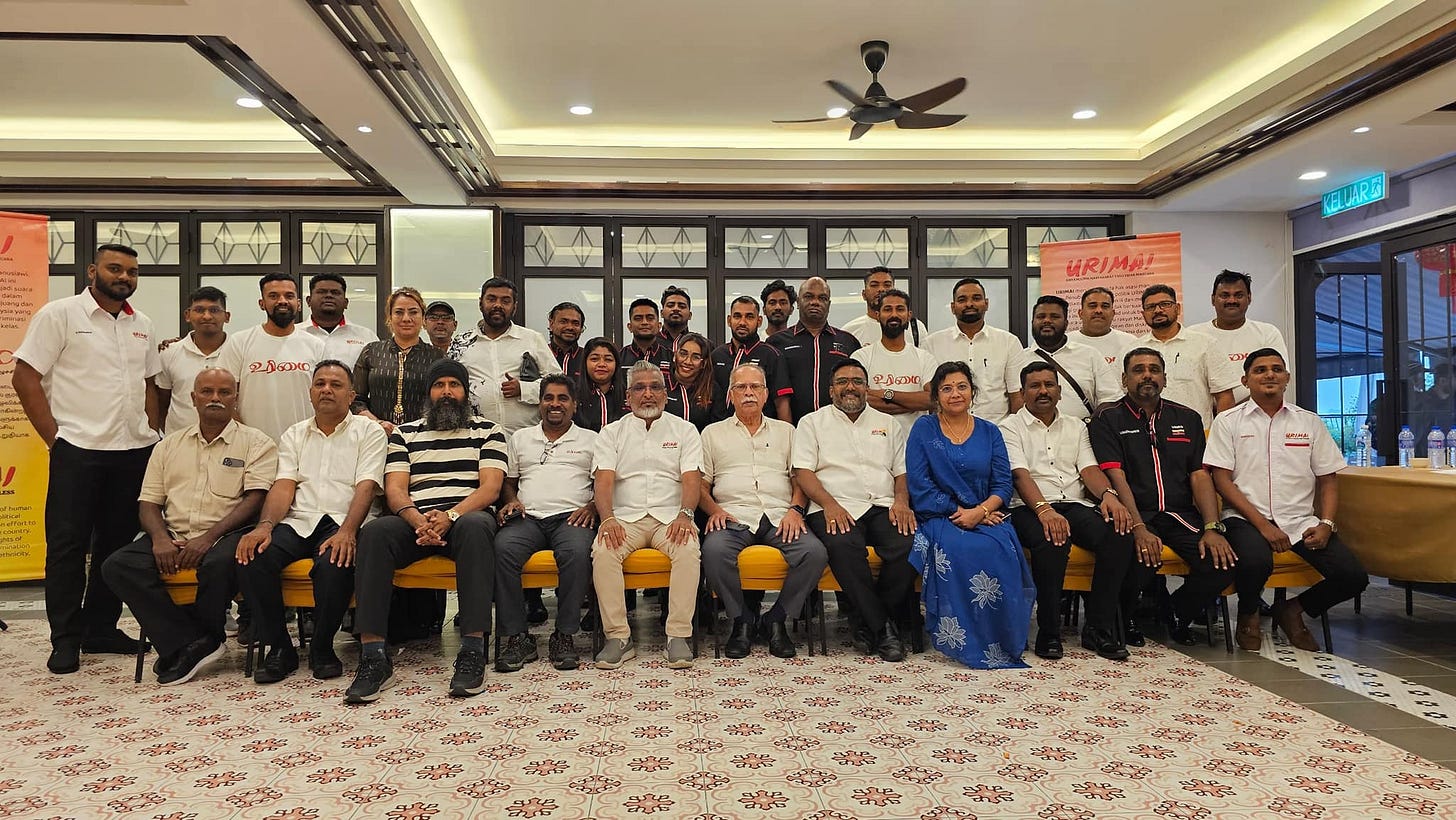
Murray Hunter
Urimai: A new dawn for Malaysia’s marginalised Indians
P Ramasamy
Jan 27, 2025

More than a year after its formation, the United Rights of the Malaysian Party (Urimai), meaning “Malaysian Rights Party,” held its first national retreat in Brinchang, Cameron Highlands, Pahang, Malaysia.
The delay in formally recognizing Urimai, despite the party meeting all legal requirements, reflects the reluctance of the supposedly reformist Madani government to grant it due acknowledgment.
Urimai seeks to champion the rights of Malaysia’s underclass, particularly the Indian community—the third-largest ethnic group in Peninsular Malaysia—yet it faces bureaucratic roadblocks.
While political parties aligned with the government receive swift registration, Urimai’s application remains stalled without valid explanation.
This has forced the party to pursue judicial review. Scheduled for January 27, 2025, at the High Court in Kuala Lumpur, the hearing has now been postponed to next month.
The right to form associations and political parties is a fundamental liberty enshrined in Malaysia’s Federal Constitution.
Governments are duty-bound to facilitate the registration of such entities if they fulfill the required conditions.
Yet, the Madani government’s hesitation appears politically motivated, stemming from fears of losing Indian voter support—already evident in recent by-elections.
Urimai’s emergence exposes cracks in the rhetoric of Malaysia’s ruling coalition, led by Prime Minister Anwar Ibrahim.
While claiming to champion reform and multiracialism, parties like PKR and DAP are increasingly perceived as perpetuating race and religion-based politics.
Anwar’s once-celebrated reformist ideals now seem overshadowed by political expediency, with little regard for marginalized communities, particularly Indians.
For decades, the Indian community has contributed significantly to Malaysia’s development yet remains one of its most marginalized groups.
Successive governments have treated Indians as mere statistics, offering tokenistic rewards to sycophants while ignoring systemic issues.
The rise of Urimai signals a break from this pattern, offering a platform that cannot be dismissed as just another Indian political party.
Urimai’s mission is unique—rooted in addressing the gaps left by existing parties in representing the Indian community.
Its growing national presence poses a challenge to the status quo, forcing the government to rethink its approach to Indian voters.
Small in numbers but resolute in spirit, Malaysia’s Indian community has the determination to fight for its rights, and Urimai is committed to leading that fight.
The two-day retreat for Urimai’s state representatives was a step toward fostering purpose and dedication in navigating this challenging political journey.
The party aims to empower Indians to break free from decades of exploitation and discrimination, striving for full and equal citizenship.
Indians in Malaysia have long been treated as “sponged oranges,” drained of their contributions and left neglected.
Urimai seeks to end this cycle by charting a path toward freedom, equality, and dignity for Malaysia’s underprivileged Indians.
The Madani government’s resistance to Urimai underscores the fear of losing its grip on Indian voters. Yet, the Indian community is no longer willing to be taken for granted. Urimai represents hope, resilience, and a new chapter in the fight for justice and equality in Malaysia.
P. Ramasamy
Former professor of political economy at Universiti Kebangsaan Malaysia (UKM) and former deputy chief minister of Penang.
No comments:
Post a Comment